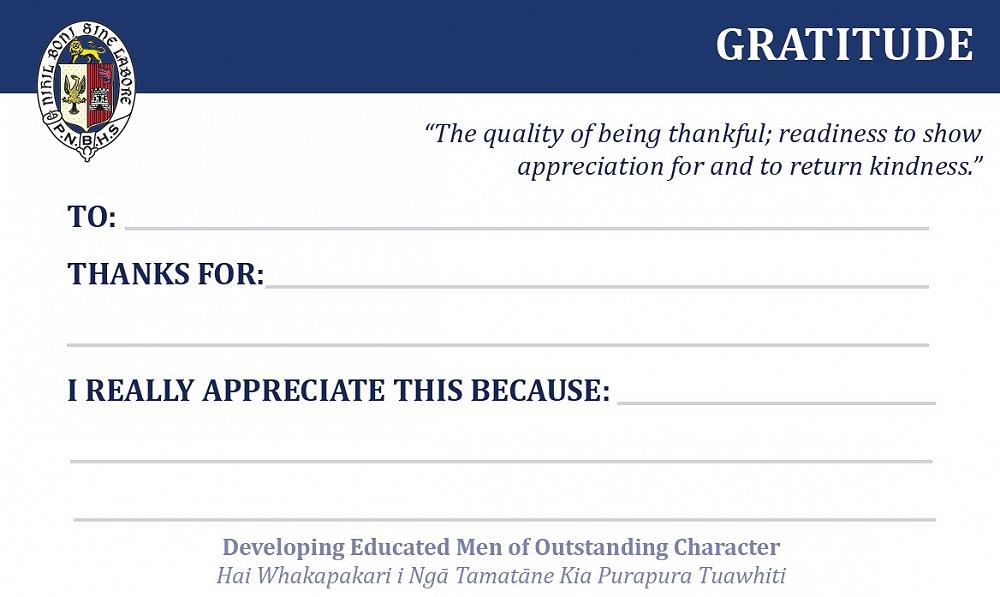
Gratitude
Young men in our Year 9 Character Education classes were asked about the things that had happened to them recently that they were grateful for and who they should be expressing that gratitude to. Who were the 'lockdown superheroes' who helped them get through? Who helps them out on a daily basis? They were then given the opportunity to complete a gratitude postcard to give to that person.
Why? Because expressing gratitude - acknowledging the things we are grateful for and the people who perform those acts - is good for all of us.
The character strength of gratitude involves feeling and expressing a deep sense of thankfulness in life, and more specifically, taking the time to genuinely express thankfulness to others. This thankfulness can be for specific gifts or thoughtful acts. It could also more generally reflect recognition of what that person contributes to your life. We can be grateful for deliberate acts by others, such as a piece of art from a child, or for spontaneous treasures, such as a cool breeze on your face on a hot day. What marks gratitude is the psychological response: the transcendent feeling of thankfulness, the sense of having been given a gift by that person or event. Grateful people experience a variety of positive emotions, and those emotions inspire them to act in more virtuous ways – humbler, more persistent, or kinder. Gratitude tends to foster the character strengths of kindness and love, and therefore is closely associated with empathy and with connection to others.
What whānau rituals or traditions do you have that help to build a habit of gratitude? What rituals could you begin?
